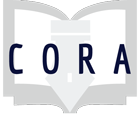Assignment
What's Happening? Evaluating News in a Time of Information Overload
In this workshop, students learn about the driving forces behind fake news, reflect on how our opinions impact the way we evaluate information, and discuss and practice using criteria for evaluating news. The workshop includes a brief presentation on fake news and cognitive biases, reflection prompts for students to respond to, and an activity in which students work in groups to evaluate different news articles on a common topic.
Students will be able to evaluate sources based on information need and the context in which the information will be used. Students will be able to recognize cognitive biases in order to reflect on how those biases influence their thinking about source credibility.
Information Literacy concepts:
Individual or Group:
Ability Level:
We offered this as a standalone workshop, and invited instructors in our writing program to offer extra credit to students who attended. We’ve also adapted the workshop for public library and community settings. The workshop generally takes about an hour and could easily be used in one-shot library instruction.
The closing activity works best with a topic that students find relatable and interesting, but one that they may not already have especially strong opinions about. We’ve used the topic of affordable housing in our region. We choose articles that represent a variety of news source types (in-depth articles, editorials, short blog posts or overview articles) that illustrate different viewpoints and levels of depth and analysis. If working with a smaller group or a longer time period, we recommend assigning each group two articles in order to allow them to compare the two.
If offering this workshop as a standalone workshop (rather than course-integrated), we recommend including an opportunity for students to introduce themselves to each other in the opening think/pair/share. After they’ve had a chance to talk to each other, ask each pair to share their response to one of the reflection questions with the larger group. This serves as an icebreaker and increases student participation throughout the workshop.

